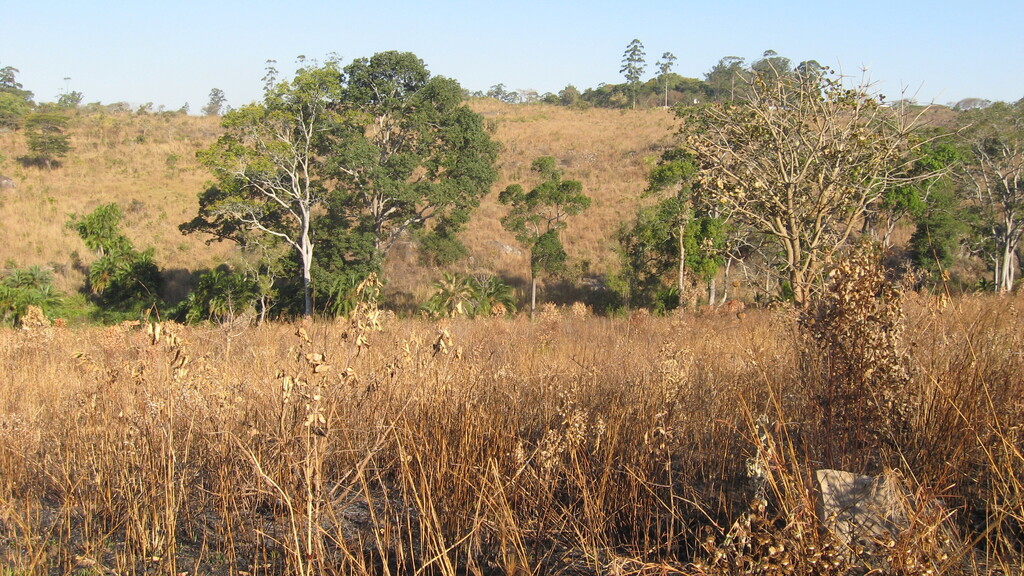

In the south of Malawi there are still small remnants of native forest with the very rare bast palm. Many threatened animal and plant species have found a last refuge here. But deforestation is taking place everywhere and Malawi is in danger of losing its forests. Naturefund is reforesting a valley where the rare bast palm still grows by means of dynamic agroforestry and is also helping farmers to switch to a more sustainable method of cultivation.

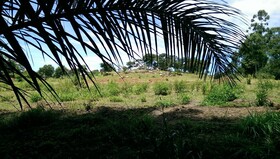
Malawi is one of the poorest countries in the world and also has one of the highest deforestation rates at 3%. The small country is acutely threatened by desertification and the complete loss of its native nature. With the forest, Malawi's unique biodiversity is disappearing - forever. The people also feel the consequences when the forest disappears. They are increasingly affected by droughts in the dry season and floods in the rainy season.
In the Nantipwili River Valley south of the city of Blantyre, there are still small remnants of forest. Even the extremely rare bast palm (Raphia farnifera) still occurs here. Numerous rare and mostly endangered animal species have also found a last refuge here.
Every year, the small remnant of forest in the Nantipwili River Valley becomes less, because people need wood and cut down the last trees. The main agricultural crop is maize in monoculture. The maize fields often border directly on the forest, pushing it back a little further each year.
If these deep-rooted trees are missing, the rain washes away part of the topsoil and the meagre yields become even smaller. In their distress, people then use chemical fertilisers. This creates a vicious circle. The whole natural system is out of balance, the plants become sick more often, so pesticides are used more and more often.
Naturefund therefore launched a pilot project in the Nantipwili River Valley in 2017. Together with the local partner Renew'N'Able Malawi, we supported 20 families around the Nantipwili River Valley in using the Dynamic Agroforestry cultivation method. With this method, the families plant a large number of trees while growing their food on the same area - without fertiliser, without pesticides and with a high yield.
The first training took place in September 2017. Noemi Stadler-Kaulich, one of the experts in this cultivation method, travelled from Bolivia to the Nantipwili River Valley for a week and showed the people how they can use the principles of Dynamic Agroforestry to build a healthy planting system and strengthen soil fertility. After only a few months, it became visible how well this approach also works in Malawi: The plants grew vigorously and were healthy, the families had a good yield, while at the same time the planted trees and bushes "held" the topsoil. In addition, the families were able to sell their surplus yields at local farmers' markets - an important step towards achieving income stability.
Due to this success, curiosity grew in the surrounding villages and more and more people were interested in learning the method as well. Therefore, we started the second phase in September 2018. This time, we selected five villages located around the Nantipwili River Valley and its tributaries. The villages of Khombaniwa, Machemba and Bernard directly border the Nantipwili River Valley. Khombaniwa is also in close proximity to the village of Sumbuleta, where the majority of the first group from 2017 lives. The other two villages are Chiwaya and William, both on a tributary.
The crowd was so large that our capacity was insufficient and we had to work with the village leaders to determine who should attend the training. People were selected from each village whose field was close to the river and who showed a willingness to learn and a spirit of innovation. They also had to be able to communicate the principles of Dynamic Agroforestry to other villagers. The choice was not easy, but in the end we had a lively group with 75% women and 25% men.
In the second phase of the project, we were able to support another 70 families to cultivate their fields using Dynamic Agroforestry. An important milestone of the project was also the training of three DAF trainers who conduct workshops to learn the method and continuously accompany the families in the implementation of the cultivation method and further develop their knowledge in practice. As some of the selected families also had limited access to water, we implemented five solar-powered irrigation systems in the second project phase. This helps to prevent the plots from drying out.
In the third phase, the aim of our project is to continue to support the families in Dynamic Agroforestry, be it through informative workshops or the practical accompaniment of the families in cultivating their plots. Thus, it is the task of the DAF trainers to advise the farmers on the implementation of the plantations, to plan next steps together and to manage the harvest. In this respect, another important aspect of the project will remain the organisation of the sale of the products grown in the DAF at local markets.
Another goal is to disseminate the "Nafagaz" cooker in Malawi, which can be used for climate-friendly cooking and at the same time for the environmentally friendly production of charcoal. The background to this is that some families in Malawi earn money by selling vegetable charcoal. Currently, vegetable charcoal is often still produced by digging a funnel-shaped hole in the ground and burning wood or whole logs in it to make vegetable charcoal. The result: high emissions of carbon monoxide and the cutting down of trees for combustion. In order to bring the climate-friendly cookers to Malawi and thus make a further contribution to climate protection, a workshop is planned for 2022, in which already trained sheet metal workers from our projects in Madagascar and Burkina Faso will teach the production and sustainable handling of the cookers. Five sheet metal workers are to be trained in this way in Malawi, so that in future it will be possible to produce the Nafagaz cookers ourselves and thus generate energy in an environmentally friendly way. In this way, we save local forests from further deforestation.
Again and again, we receive news from our partner Renew'N'Able Malawi about local extreme weather events. Only at the end of January 2021, a severe tropical storm passed through the project region. The water stations, which are so important for the DAF plantations, and other infrastructure were severely damaged. Electricity failed for days and communication lines were interrupted. The access bridge to the DAF plots was also washed away by water masses and the road leading there is impassable. This is also where Naturefund's work comes in: Rebuilding and maintaining important infrastructure.
Deutsche Umwelthilfe and the Hand-in-Hand Fund have been supporting the project since 2017.
Here you will find information and news about this project.
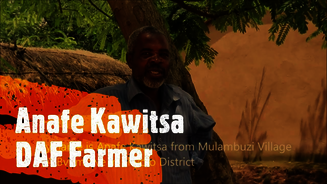
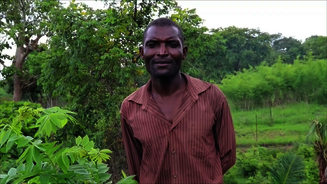

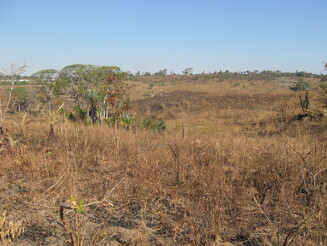
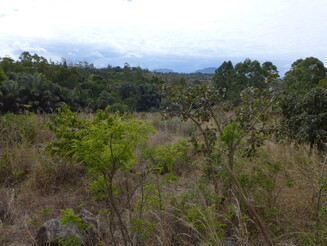
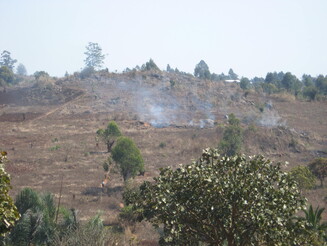
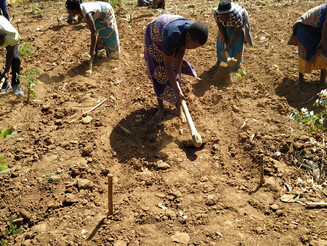
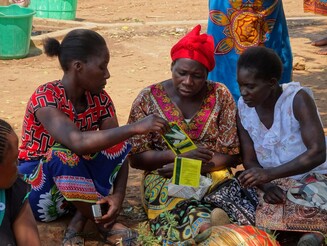
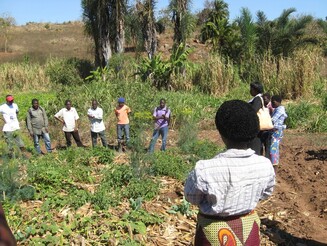
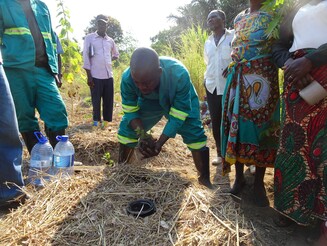
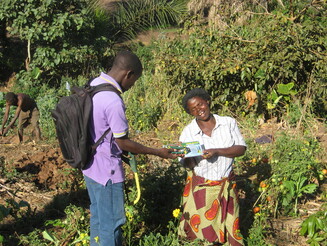
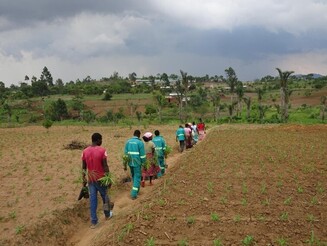
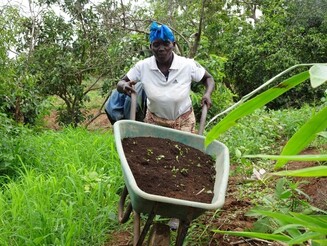
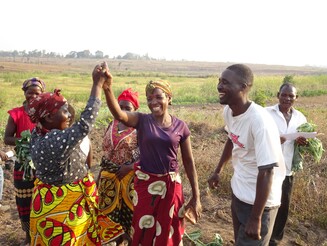
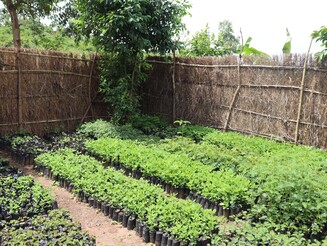
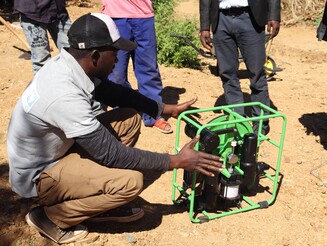
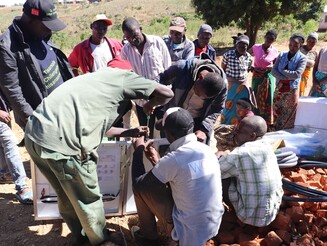
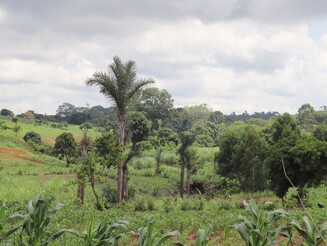
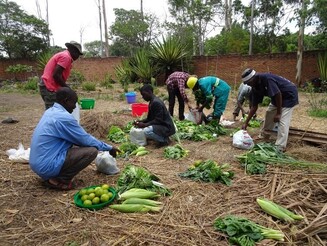
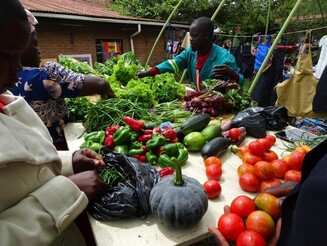
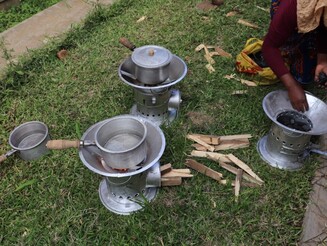
Sorry, there is no comment for this project yet. Write the first one!